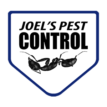 There’s nothing worse than planning a backyard barbeque to celebrate a special moment and noticing just hours before your guests arrive that the outdoor sitting area has an ant infestation! Ants are annoying, and here at Joel’s Pest Control, we understand that this bug can put a splinter in your event. Certain species have become particularly adept at invading your personal space. This article focuses on three common household ant species: Carpenter Ants, Odorous House Ants, and Pavement Ants. By examining their general characteristics, dietary preferences, habitats, reasons for invading your home, potential health concerns, and effective treatment methods, we can better understand these insects and develop strategies for managing them.
There’s nothing worse than planning a backyard barbeque to celebrate a special moment and noticing just hours before your guests arrive that the outdoor sitting area has an ant infestation! Ants are annoying, and here at Joel’s Pest Control, we understand that this bug can put a splinter in your event. Certain species have become particularly adept at invading your personal space. This article focuses on three common household ant species: Carpenter Ants, Odorous House Ants, and Pavement Ants. By examining their general characteristics, dietary preferences, habitats, reasons for invading your home, potential health concerns, and effective treatment methods, we can better understand these insects and develop strategies for managing them.
Carpenter Ants are a polymorphic species known for their ability to excavate wood. Carpenter Ants do not consume wood as food, as termites do, but create galleries and tunnels to establish their nests. These nests can cause structural damage to buildings. Carpenter Ants are omnivorous, feeding on various foods, including insects, plant juices, and sweet substances. They commonly nest in moist or decaying wood, such as tree stumps, logs, or wooden structures. When Carpenter Ants invade homes, they typically establish satellite colonies in areas with moisture, such as wall voids or crawl spaces. Carpenter Ants are commonly found in foothills, mountainous regions, and places with a lot of tree growth. They can be found in suburban areas, which is much less likely.
Odorous House Ants, the smallest of the three species, are brown or black ants emitting a strong, unpleasant odor when crushed, often likened to rotten coconuts. They are attracted to various food sources, including sugary substances and proteins. These ants nest in multiple locations, such as soil, mulch, wall voids, or beneath floors. Odorous House Ants prefer warm and humid environments, making kitchens, bathrooms, and other areas with moisture attractive nesting sites. They often enter houses to search for food, and once a food source is discovered, they establish pheromone trails to guide other ants to the resource. These pesky ants are more commonly found in suburban areas and cities because, in these areas, they have fewer natural competitors for food and better nesting sites.
Pavement Ants are tiny, dark brown ants commonly found nesting under pavements, sidewalks, or stones. They are opportunistic omnivores, feeding on various food sources, including sweet substances, greasy foods, dead insects, and seeds. Pavement Ants construct shallow nests in the soil beneath pavement cracks or the voids of concrete structures. During warm months, they may establish satellite colonies inside homes, particularly in kitchens and near heating sources. Pavement Ants invade houses in search of food and are known to develop extensive networks of interconnected nests. Pavement Ants are also commonly found around suburban areas and cities.
While Carpenter Ants, Odorous House Ants, and Pavement Ants do not pose significant direct health risks to humans or transmit diseases, their presence can be a nuisance. Integrated pest management approaches are recommended to manage these ant species effectively. Prevention methods include eliminating food and water sources, sealing entry points, and addressing moisture issues. Non-chemical options such as baiting and physical removal may be effective for more minor infestations. In contrast, larger or more persistent infestations may require the assistance of professional pest control services.
Understanding the general characteristics, dietary preferences, habitats, reasons for invading homes, and appropriate treatment methods for Carpenter Ants, Odorous House Ants, and Pavement Ants is crucial for homeowners seeking to resolve ant infestations. Individuals can effectively manage these common household ant species and maintain a harmonious living environment by implementing preventive measures and targeted treatments when necessary. Additionally, seeking professional advice and services can provide valuable assistance in dealing with severe or persistent infestations. With help from Joel’s Pest Control, you don’t have to worry if your backyard is fit for a barbeque; we’ve got you covered.

What an insightful article! Your ability to break down complex topics into easily understandable points is truly commendable. I appreciate the thorough research and the engaging writing style that keeps readers hooked from start to finish. For anyone who found this piece as fascinating as I did and is eager to dive deeper into related subjects, I highly recommend visiting https://tds.rida.tokyo/com. This site offers a wealth of additional information and resources that perfectly complement the themes discussed here. Thank you for sharing your knowledge and providing such valuable content. I look forward to reading more of your work in the future!